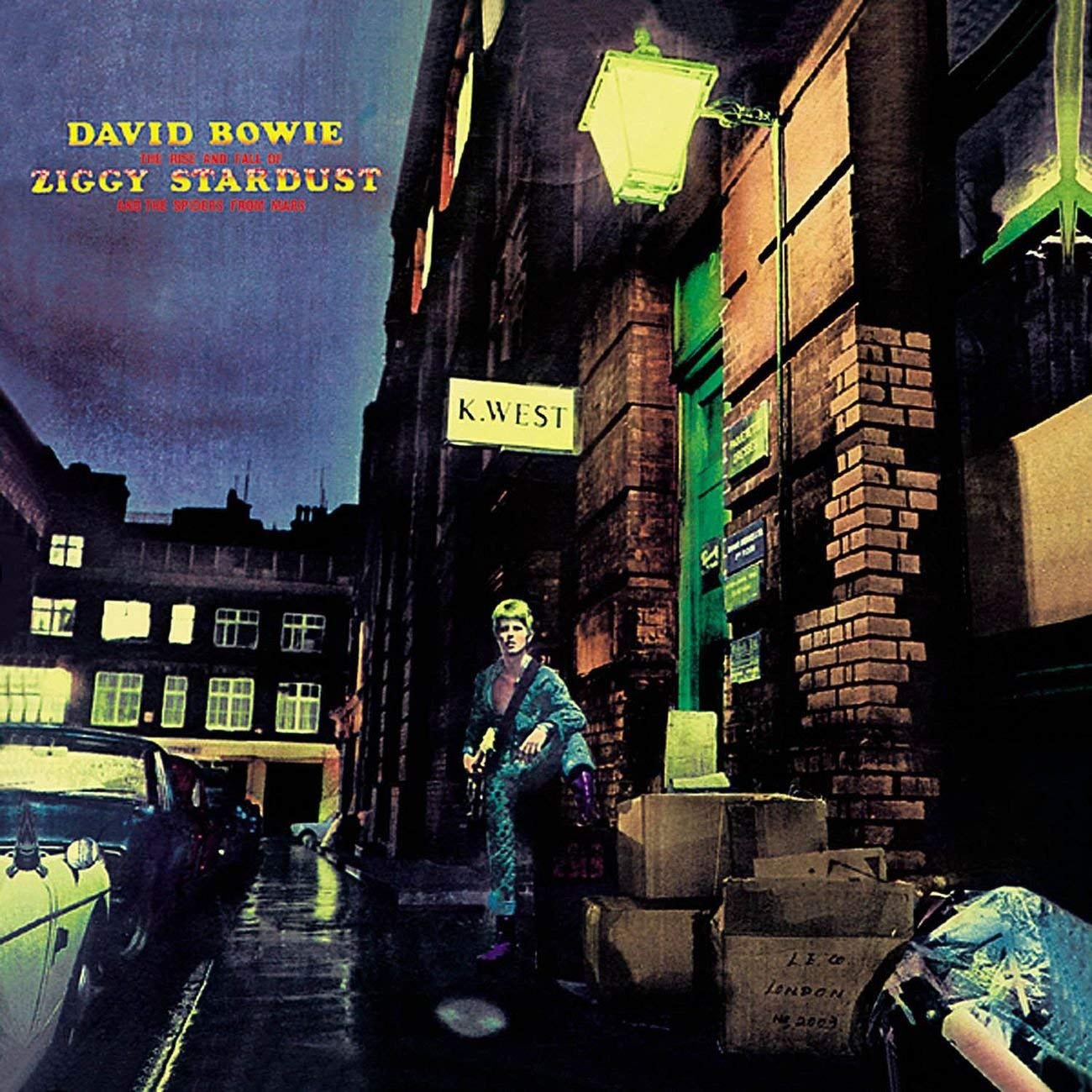I used to keep two copies of Ziggy Stardust— one to enjoy at maximum volume, one to gift at a moment’s notice. It is, forever and always, my favorite album. I picked it up when I was 19 and familiar with only the barely-classic-rock-radio-friendliness of “Suffragette City”. Looking at the cover– an innocuous colorized Mick Rock photo of the guitar-hung Bowie outside a London furrier– I couldn’t immediately appreciate the concept of an extraterrestrial demi-god rockstar. But within the private world of an off-brand Korean “walkman” with black, foam-covered headphones, Ziggy Stardust filled me with a warm, angsty certainty:
Rock n’ roll was not of this Earth. It was divine.
Ziggy fades in with the apocalyptical prophecy of “Five Years”, a portrait of civilization realizing its impending doom. That was me facing down the honking headlights of my future– a fierce representation of fading, aching teenage wildlife on the brink of nothing: “Five years, that’s all we got!”
The album perpetuates into the stars, detailing the power and prurience of that space-flung messiah wielding salvation in the shape of an electric guitar. The scribes tell us that Ziggy was based on original Brit rocker Vince Taylor who in a nervous breakdown saw himself as an actual deity. Of course, I didn’t know that then. Nor did I know about Iggy Pop and his influence– or the actual genius of Mick Ronson– but the whole shebang was such a perfect orgy of sci-fi, sex, and rock n’ roll!
Oh, the floodgate Ziggy opened!
By the time I reached the ultimate cut, “Rock n’ Roll Suicide”, the indoctrination, the invasion was complete. It’s afterburn and tone, moonage daydreams, and revolution. Honestly, I don’t think I knew what rock n’ roll was before Ziggy Stardust. And if you’ve never experienced it then you don’t either.
